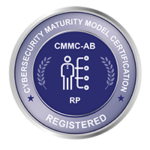The concept of privacy is deeply embedded in Western democratic cultures, where individuals often expect a certain degree of personal autonomy and protection from the government or other authorities. However, this is not a universal norm, as reflected in language itself. Remarkably, the Russian language lacks a direct word for “privacy,” a linguistic gap that reflects cultural and political differences in how personal autonomy is viewed. This absence can be traced back to historical state control, where individual privacy was often seen as secondary to collective security or the interests of the state.
In contrast, in democratic nations, privacy is a cherished value, enshrined in both law and public expectations. Citizens in these countries demand the right to make personal choices without government intrusion. This cultural and philosophical divide is mirrored in modern discussions about privacy, particularly when it comes to technology and mobile security, where increasing digital surveillance and control mechanisms present new challenges.
Mobile Security and the Privacy Dilemma
The mobile security industry stands at the crossroads of technological innovation and personal privacy. In an effort to protect organizations from data breaches and other cyber threats, tools like Mobile Device Management (MDM) have become widespread. MDM systems allow businesses to control and monitor employees’ devices, ensuring that company data is secure. Much like authoritarian nations however, this control often comes at a significant cost to individual privacy, as these systems grant employers access to personal devices, blurring the lines between work and personal life.
Forced upon them under the guise of corporate/government fortification, employees are finding that MDM tools take extensive control over their devices, monitoring usage, restricting access to apps, and even wiping data remotely. This creates a scenario where personal privacy is compromised for security, echoing the same tensions seen in societies where individual privacy is secondary to the needs of the state.
This is especially concerning in a world where employees increasingly use their personal devices for both work and private life. The intrusion into personal data, browsing history, and private communications by employers can lead to discomfort and a loss of autonomy, fostering a sense of surveillance not unlike that experienced in nations where privacy is not an ingrained cultural norm.
SyncDog’s Balanced Approach to Mobile Security and Privacy
Enter SyncDog, a company that seeks to solve this dilemma by providing a balanced approach to mobile security. SyncDog’s technology offers a robust security framework for work-related activities on mobile devices without infringing on the personal privacy of end-users. Through its innovative software, SyncDog separates work data, emails, and applications from personal ones, creating two distinct environments on a single device.
This approach allows stringent security measures to be applied to the work-related aspects of a mobile device, safeguarding corporate data with encryption, containerization, and policy enforcement. Meanwhile, the personal side of the device remains unrestricted, allowing employees the freedom to use their phones for private activities without the risk of being monitored or controlled by their employer. This contrasts sharply with traditional MDM systems that take an all-encompassing approach, treating the device as a singular unit under corporate control.
By maintaining this separation, SyncDog ensures that individuals retain personal privacy and autonomy, even in the context of strict workplace security. This mirrors the expectations in democratic societies, where individuals expect the right to privacy while simultaneously benefiting from the security measures that protect the broader community.
Privacy as a Cultural and Technological Imperative
The lack of a word for privacy in the Russian language reflects a deeper cultural and political distinction that affects everything from governance to personal autonomy. In the digital age, where privacy concerns extend to the devices we use every day, these distinctions are increasingly relevant. Mobile security technologies like MDM can often infringe on personal privacy, much like a government that prioritizes state control over individual freedoms.
SyncDog’s technology represents a progressive alternative, allowing users to maintain a clear distinction between their professional and personal lives. By offering a solution that respects the privacy of individuals while meeting the security needs of businesses, SyncDog creates a model that aligns with the fundamental ideals of autonomy and freedom.
In a world where the lines between personal and professional life are increasingly blurred, protecting both privacy and security is not just a technical challenge, but a moral necessity as well. SyncDog’s ability to navigate this delicate balance emphasizes its forward-thinking vision in an industry that often sacrifices individual rights for corporate control.
Contact us to learn more or request a demo to see SyncDog in action.
